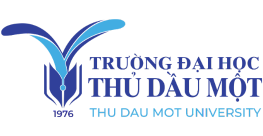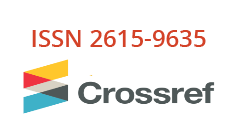PHYSICAL LAYER INFORMATION SECURITY IN ENERGY HARVESTING UNDERLAY COGNITIVE RADIO NETWORKS
Abstract
This article investigates the physical layer security (PLS) performance in an Energy Harvesting Underlay Cognitive Radio Network (EHUCRN). Firstly, the article examines the impact of parameters such as primary transmitter power, interference power threshold, and expected security level on EHUCRN's Secrecy Outage Probability (SOP). Then, based on the findings, the article evaluates the PLS performance of the system. The results indicate that increasing the primary transmitter power reduces the PLS performance while raising the interference power threshold improves PLS performance. Furthermore, increasing the expected security level decreases the PLS performance. Additionally, the percentage of time spent collecting energy increases within a small range, resulting in an increasing PLS performance up to a peak value. However, if this percentage continues to increase within a large range, the PLS gradually decreases. Moreover, the results demonstrate that the PLS performance in EHUCRN is low due to relatively high SOP values.
Keywords
Full text
View PDFPublication Information
Publisher
Thu Dau Mot University, Viet Nam
Honorary Editor-in-Chief and Chairman of the Editorial Board

Assoc. Prof. Nguyen Van Hiep
Deputy Editor-in-Chief

PhD. Trần Hạnh Minh Phương
Thu Dau Mot University
Thu Dau Mot University
Editorial Board

Prof. Tran Van Doan
Fujen University, Taiwan
Fujen University, Taiwan

Prof. Zafar Uddin Ahmed
Vietnam National University Ho Chi Minh City
Vietnam National University Ho Chi Minh City

Prof.Dr. Phillip G.Cerny
The University of Manchester, United Kingdom
The University of Manchester, United Kingdom

Prof. Ngo Van Le
University of Social Sciences and Humanities (VNU-HCM)
University of Social Sciences and Humanities (VNU-HCM)

Prof. Bui The Cuong
Southern Institute of Social Sciences
Southern Institute of Social Sciences

Prof. Le Quang Tri
Can Tho University
Can Tho University

Assoc. Prof. Nguyen Van Duc
Animal Husbandry Association of Vietnam
Animal Husbandry Association of Vietnam

Assoc. Prof. Ted Yuchung Liu
National Pingtung University, Taiwan
National Pingtung University, Taiwan

PhD. Anita Doraisami
Economics Monash University, Australia
Economics Monash University, Australia

Prof. Dr. Andrew Seddon
Asia Pacific University of Technology & innovation (APU)
Asia Pacific University of Technology & innovation (APU)

Assoc. Prof. Le Tuan Anh
Thu Dau Mot University
Thu Dau Mot University

Prof. Abtar Darshan Singh
Asia Pacific University, Malaysia
Asia Pacific University, Malaysia

Prof.Dr. Ron W.Edwards
The University of Melbourne, Australia
The University of Melbourne, Australia

Assoc. Prof. Hoang Xuan Nien
Thu Dau Mot University
Thu Dau Mot University

PhD. Nguyen Duc Nghia
Vietnam National University Ho Chi Minh City
Vietnam National University Ho Chi Minh City

PhD. Bao Dat
Monash University (Australia)
Monash University (Australia)

PhD. Raqib Chowdhury
Monash University (Australia)
Monash University (Australia)

PhD. Nguyen Hoang Tuan
Thu Dau Mot University
Thu Dau Mot University

PhD. Nguyen Thi Lien Thuong
Thu Dau Mot University
Thu Dau Mot University
Assistant

Nguyen Thi Man
Thu Dau Mot University
Thu Dau Mot University

